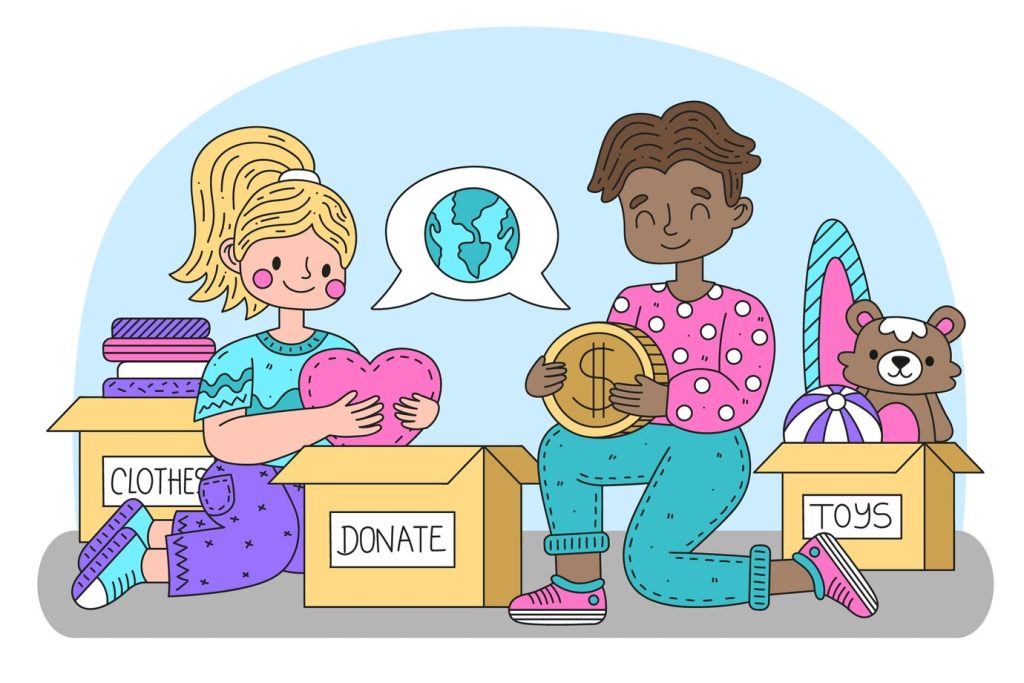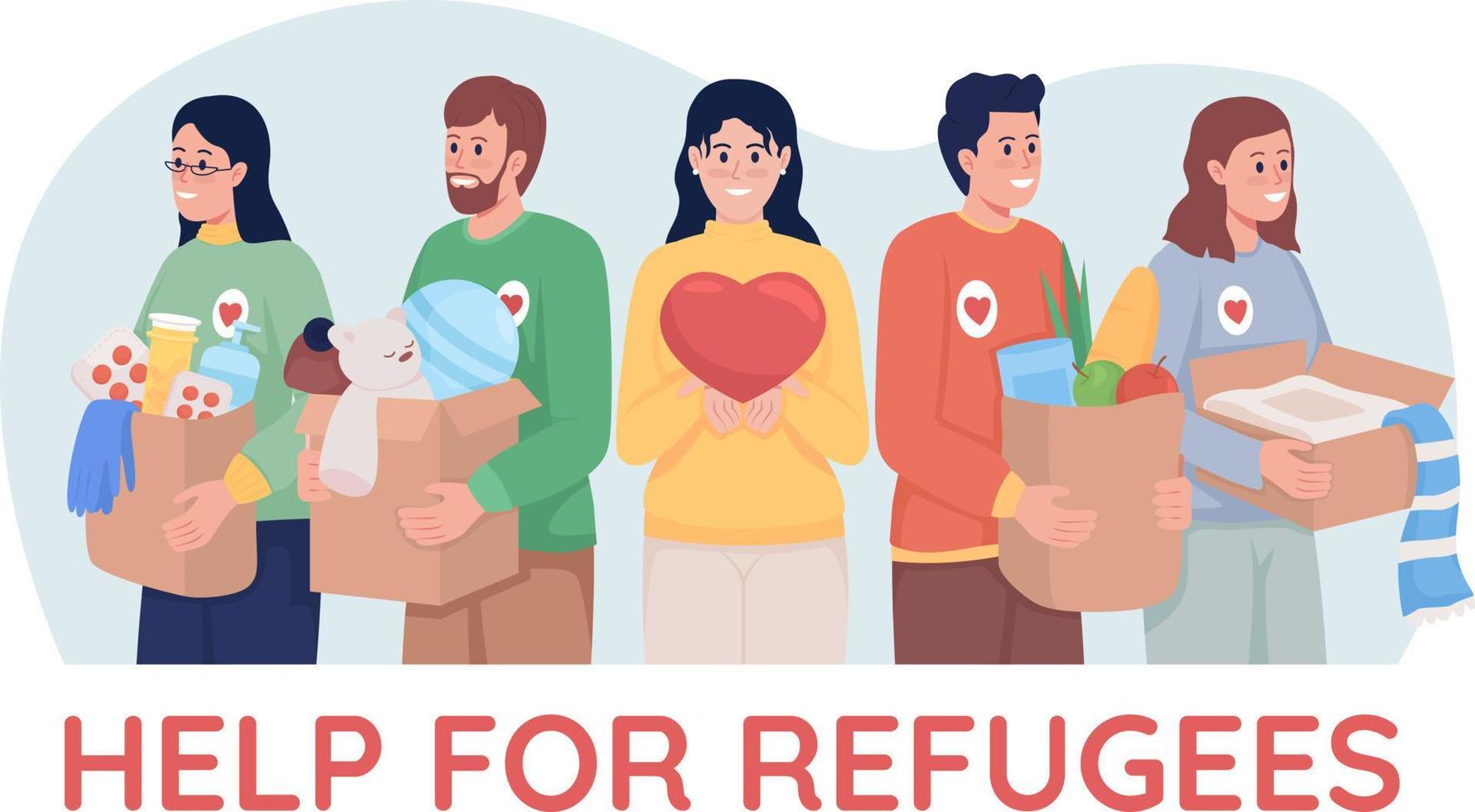The Vital Role of Charities in Enhancing the Refugee Health System
Charities play a crucial role in bolstering the refugee health system and driving its improvement. They serve as key contributors to enhancing social welfare and spearheading reforms and advancements within the health sector. The societal impact of charities is paramount, significantly influencing the health and well-being of both individuals and communities.

The Role of Charities in the Refugee Health System
Charitable institutions, driven by the altruism of compassionate individuals, play a pivotal role in enhancing the health system, particularly for refugees. These organizations are dedicated to aiding those in need and improving the overall health of society. Their primary objectives encompass the development of preventative programs, provision of financial assistance for vulnerable patients, and fostering community awareness of health issues, especially within refugee populations.
Examples of Charities’ Contributions to the Refugee Health System
The role of charities in safeguarding the health of refugee populations is paramount, addressing various critical aspects essential for bolstering and sustaining the health system. Here are some key examples:
1. Preventative Program Implementation:
Charities actively engage in designing and implementing preventative programs tailored to the unique healthcare needs of refugees. These initiatives focus on mitigating health risks prevalent among displaced populations, such as infectious diseases and malnutrition, through vaccination campaigns, health education workshops, and sanitation initiatives.
2. Financial Support for Needy Refugee Patients:
Charities play a crucial role in providing financial assistance to refugee patients who lack access to essential healthcare services due to financial constraints. By mobilizing resources and leveraging donor support, charities ensure that vulnerable refugees receive necessary medical treatment, including access to medications, surgeries, and specialized care.
3. Community Health Awareness Campaigns:
Charities undertake comprehensive community health awareness campaigns within refugee populations to promote proactive healthcare practices and empower individuals to take charge of their well-being. These initiatives encompass culturally sensitive health education sessions, outreach programs, and the distribution of informational materials in multiple languages to enhance health literacy and promote healthy behaviors.
The indispensable role of charities in the refugee health system underscores their commitment to addressing the unique healthcare challenges faced by displaced populations. By championing preventative measures, providing financial assistance, and fostering health awareness, charities play a vital role in safeguarding the health and well-being of refugees, thereby contributing to the broader societal health landscape.
The Role of Charities in Health Financing
One of the primary functions of charities is to provide financial support to the health system. These organizations typically acquire funds through donations and charity events, which are then allocated to various aspects of healthcare. These donations are instrumental in procuring medical equipment, covering treatment costs for needy patients, and funding medical research. Consequently, charities significantly contribute to the health economy, and ensuring the proper execution of this role is crucial for the development and enhancement of the healthcare system.
Support for Needy Refugee Patients
Charities primarily exist to offer assistance to individuals in need, including those facing financial challenges in accessing healthcare services, particularly refugee patients. In these instances, charities serve as invaluable sources of support, enabling vulnerable patients to afford medical treatment and regain their health. This compassionate act directly enhances the lives of individuals and underscores the humanitarian role of charities. By alleviating the financial burden of disease, charities instill a sense of confidence and hope in individuals grappling with health challenges, reaffirming their status as indispensable pillars of compassion and support within society.
Development of Prevention Programs for Refugee Health System
Charities recognize the adage that prevention is better than cure, particularly when it comes to refugee health. Understanding the significance of this principle, charities diligently work to develop prevention programs across various domains. These initiatives encompass raising awareness of risk factors, facilitating population-wide vaccination campaigns, and promoting healthy dietary habits. By implementing such measures, charities fulfill their role in the broader health system, helping to prevent diseases and enhance life expectancy among refugee populations.
Increasing Community Awareness of Refugee Needs
A pivotal aspect of effective community health management is elevating public awareness of pertinent health issues, especially concerning refugees. Charities play a crucial role in this endeavor by undertaking measures to heighten awareness within society. These actions may include conducting educational campaigns, disseminating informative materials through various media channels, and advocating for healthy lifestyle practices within communities. By enhancing public understanding of refugee health needs, charities contribute significantly to improving overall health outcomes within society.
Enhancing Access to Health Services for Refugees
Improving access to health services stands as a fundamental objective for charities, particularly concerning refugees. These organizations dedicate resources, both financial and human, to establish healthcare facilities and treatment centers in underserved regions, ensuring that refugees have access to essential medical care.
Motivation as a Key Driver
Charities operate on a foundation of profound motivation and enthusiasm, driven by the desire to assist others in need. Contributors to these organizations are typically individuals motivated by a genuine desire to enhance the Refugee Health System and well-being of the refugee community. This positive motivation serves as a crucial catalyst for the success of charities, underlining their pivotal role in fostering motivation to improve the Refugee Health System.
Positive Economic Impacts
The activities of charities yield positive economic outcomes, benefiting both refugees and host communities. Firstly, these institutions generate employment opportunities, thereby contributing to economic growth and stability within refugee settlements. Additionally, by improving the health status of refugees, charities indirectly strengthen the production capacity and economic resilience of the host country. In essence, charities play a dual role in enhancing the economy: by creating jobs and reducing healthcare expenditures through proactive health interventions.
Remarkable Achievements of Refugee Charities Worldwide
Refugee charities around the world have made remarkable strides, leaving a lasting impact on displaced communities. Organizations like Doctors Without Borders have delivered essential medical services in crisis-affected regions, providing vital aid to countless individuals grappling with diseases and disasters. Similarly, venerable institutions like the Red Crescent have earned acclaim for their steadfast support of the wounded and vulnerable amidst times of conflict and crisis. These achievements underscore the pivotal role of refugee charities in global health initiatives aimed at serving displaced populations.
Supporting Refugee Charities in Advancing Refugee Health System
Each of us can play a part in supporting refugee charities as they strive to enhance Refugee Health System outcomes for displaced communities. Donating to these organizations serves as a primary means of aiding those in need and strengthening the health infrastructure for refugees. Additionally, volunteering for refugee charity initiatives enables individuals to directly impact the lives of displaced persons, offering hands-on assistance and support. By raising awareness of the critical role played by refugee charities and advocating for their cause, we can further empower their efforts in promoting health and well-being among displaced populations.
Conclusion
In conclusion, refugee charities play an indispensable role in the Refugee Health System for displaced populations, spearheading initiatives such as health financing, support for vulnerable patients, development of prevention programs, increased community awareness, and fostering motivation. Their positive contributions extend beyond health, as evidenced by their significant achievements on a global scale in serving displaced communities. It is incumbent upon each of us to contribute to the collective effort in supporting refugee charities, thereby ensuring the continued improvement and strengthening of health outcomes for displaced populations worldwide.
read more: Economic Activities of Refugee Charities




